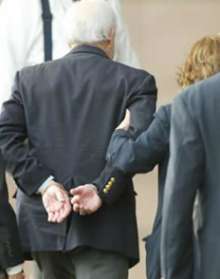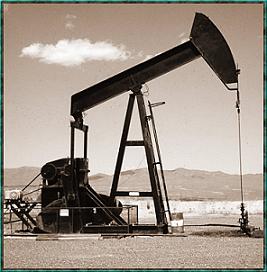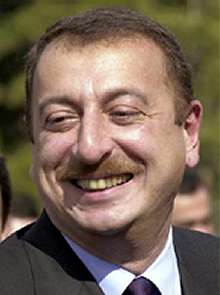Ukraine's successful Orange Revolution is rekindling interest in using the oil pipeline from Odessa on the Black Sea to Brody on the Polish border, opening a way for Caspian oil from Kazakhstan to reach Europe. For this project to work, the pipeline would need to be extended all the way to the Baltic Sea at Gdansk, as originally intended. Ukrainian President Viktor Yushchenko recently said that this extension should be a priority for a Europe looking to diversify energy supply sources and transport options.
Ironically, the pipeline's potential value as an alternative and viable supply route for Europe's energy needs is exactly the reason why it hasn't been built yet. Initially planned by Ukraine and Poland with U.S. political support, the Odessa-Brody section was completed in 2002. The following year, the Ukrainian and Polish governments and the European Commission agreed on extending the line to Gdansk.
However, these plans have come to nothing so far mainly because Russia and its state-connected oil companies have stood in the way, politically as well as literally. Sitting astride the overland transit routes for Kazakhstan's oil, Russia took advantage of its transit monopoly to prevent Kazakh oil producers from using the Odessa-Brody pipeline. Russia has no interest in facilitating a competitor's access to European markets. On the contrary, Moscow seeks to maximize its market share and price leverage, thwart the EU's supply diversification strategy, and ultimately exploit Europe's growing dependence on Russian energy for its political objectives.
As a result, the Odessa-Brody pipeline remained dry and idle for more than two years for want of access to Caspian oil. With the then-ruling regime of President Leonid Kuchma tilting politically toward the Kremlin, the stage was set in 2004 for the "reverse use" of this pipeline. Instead of pumping Caspian oil northward, it is carrying Russian oil southward to Odessa for export by tanker through the Turkish Straits to the Mediterranean basin. sounds like the revolution came just in time to Kiev
The Russian-British company Tyumen Neft-BP (TNK-BP) is the main user of the pipeline in the reverse mode. Agreements signed last year envisage pumping nine million tons annually for a three-year period from Russian fields operated by TNK-BP and various Russian companies. However, the volumes being pumped since then amount to only a fraction of that figure. The pipeline therefore operates at a substantial loss for the Ukrainian government, which is unable to recoup its investment or even cover the full maintenance costs.
Ukrainian officials are right to believe that the reverse-use idea was always politically motivated -- namely to thwart the originally intended use of the pipeline to transport Caspian oil to EU countries. Russian oil producers have very little commercial interest in the Odessa-Brody route, which they underutilize mainly in order to block access of Caspian oil.
At a recent international business forum in Kiev, Ukrainian, Polish and European Commission experts renewed talks on the extension project. The EU even opened a credit line for the technical and commercial feasibility study on extending the pipeline into Poland. The construction is expected to take three years and cost â¬450-500 million. Receiving oil via Poland through existing pipeline links could be particularly interesting for Germany.
The Ukrainian government seeks a commitment of 10 million tons of Caspian crude oil annually, with guarantees of uninterrupted supply for this project. Ukrainian and Polish business proposals are based on Kazakhstan's projected oil output growth to as much as 100 million tons by 2010 from some 50 million tons at present. The true potential for Kazakh oil production is of course also a function of the availability of transport routes and consumers and can only be fully assessed once Ukraine and Poland initiate the formation of a consortium to extend the pipeline to Gdansk with EU backing.
Mr. Yushchenko and Prime Minister Yulia Tymoshenko propose using oil from the giant Tengiz field in the northwest of Kazakhstan, which is majority-owned and operated by ChevronTexaco. At the moment, Tengiz oil is being pumped to Russia's Black Sea port Novorossiisk through a major pipeline owned and operated by the ExxonMobil-led Caspian Pipeline Consortium (CPC). Ukraine intends to initiate discussions with the producers and transporters of Kazakh oil, Russia's Transneft state pipeline monopoly, and the Kazakh government to carry Tengiz oil from Novorossiisk by tanker to Odessa. An alternative option would involve shipping the oil from Kazakhstan on the short trans-Caspian route to Azerbaijan, and pump it through BP's existing pipeline to Georgia's Black Sea port of Supsa, for shipment to Odessa and on to Poland. The attraction of this last option is twofold: It is shorter than the route via Russia, and it would provide the first direct link between the Caspian basin and Europe. As a result, it would be safe from any Russian political manipulation.
Mr. Yushchenko and the German and Polish ministers of foreign affairs, Joschka Fischer and Adam Rotfeld, discussed the project at their meeting in Kiev. Since then, there has been a flurry of other meetings. In late March, Polish President Aleksander Kwasniewski and Mr. Yushchenko discussed the financing of the project while Mr. Kwasniewski and Azerbaijan's President Ilham Aliev examined the transit options to Odessa. The presidents of Georgia and Kazakhstan, Mikhail Saakashvili and Nursultan Nazarbayev, just held talks in Kazakhstan to discuss the possibilities of oil deliveries via Azerbaijan and Supsa to Odessa.
However, Moscow will almost certainly continue opposing the northward use of the Odessa-Brody pipeline and its extension for the transport of Caspian oil. This is why U.S. political support is so crucial. In 2003, U.S. Vice President Dick Cheney prevailed on then-Prime Minister Viktor Yanukovych to suspend the decision on reverse use, pending supply offers from American companies in Kazakhstan. But the Kuchma-Yanukovych regime ignored that offer and agreed to the reverse-use for Russian oil.
This time around, Moscow may find the combined pressure from Washington, the American oil companies in Kazakhstan, and the transit and consumer countries of the oil pipeline too strong to withstand. Success of this project would finally begin to arrest Europe's worrisome slide into overdependence on Russia for its energy supplies. we'll see ... Putin won't give up easily ... I wonder if this pipeline will be sabotaged by 'insurgents' out of Moscow -- physically, if they can't stop it politically
|
 (AKI) - An Azeri journalist who had written an article on potential targets in Azerbaijan which Iran could choose to strike has been arrested. Einollah Fatollahov, the editor in chief of Realti Azerbaijan newspaper, wrote a story on the possibility that Tehran could target Azerbaijan, a close ally of Washington, in retaliation to a US attack against Iranian nuclear installations. He was detained Friday on terrorism charges for his story.
(AKI) - An Azeri journalist who had written an article on potential targets in Azerbaijan which Iran could choose to strike has been arrested. Einollah Fatollahov, the editor in chief of Realti Azerbaijan newspaper, wrote a story on the possibility that Tehran could target Azerbaijan, a close ally of Washington, in retaliation to a US attack against Iranian nuclear installations. He was detained Friday on terrorism charges for his story. 
 Russia's use of energy supplies as a political weapon should be a wake-up call to Britain and the West to deal urgently with the threat, senior Conservatives said last night.
Russia's use of energy supplies as a political weapon should be a wake-up call to Britain and the West to deal urgently with the threat, senior Conservatives said last night. Azerbaijan's ruling party took an early lead in Sunday's parliamentary elections in this oil-rich, strategically located former Soviet republic that has been led by the same family for years, but the opposition charged widespread fraud. The ballot was closely watched for signs of improvement on flawed past elections that sparked violence and instability in a Caspian Sea nation that lies in the restive region between Russia and Iran. It was considered an uneven contest, however, given President
Azerbaijan's ruling party took an early lead in Sunday's parliamentary elections in this oil-rich, strategically located former Soviet republic that has been led by the same family for years, but the opposition charged widespread fraud. The ballot was closely watched for signs of improvement on flawed past elections that sparked violence and instability in a Caspian Sea nation that lies in the restive region between Russia and Iran. It was considered an uneven contest, however, given President  A former top aide to Azerbaijan President
A former top aide to Azerbaijan President  Azerbaijani protesters demanding free elections were beaten back Saturday by police, who arrested dozens as they broke up a banned rally in the oil-rich former Soviet republic on the Caspian Sea four days before the inauguration of a new pipeline. Tension between the government and the opposition in the tightly controlled country has increased since an October 2003 election in which
Azerbaijani protesters demanding free elections were beaten back Saturday by police, who arrested dozens as they broke up a banned rally in the oil-rich former Soviet republic on the Caspian Sea four days before the inauguration of a new pipeline. Tension between the government and the opposition in the tightly controlled country has increased since an October 2003 election in which  Azerbaijan's President
Azerbaijan's President